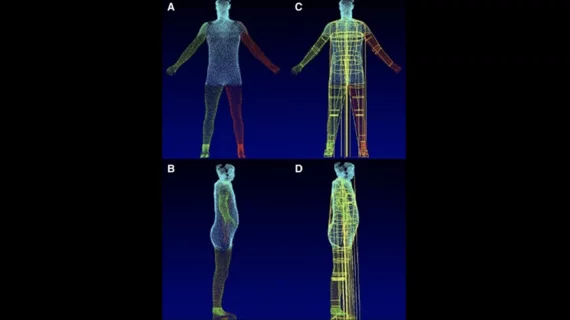Olivia Williams Unveils 3 Key AI Protections for Actors (2023 Insight)
Olivia Williams calls for 'nudity rider'-style protections against AI body scans, addressing privacy and consent in the acting industry.

Olivia Williams Advocates for AI Protections in Acting
Olivia Williams, the acclaimed British actor, has called for new types of contractual controls—similar to “nudity riders”—to protect actors from the unauthorized use of AI-generated body scans. Her appeal addresses growing concerns over the use of artificial intelligence technologies to digitally replicate actors’ bodies without proper consent, particularly in nude or sensitive scenes.
Background: AI Body Scanning in Film and TV
In recent years, the film and television industries have increasingly adopted AI technologies that employ body scanning and digital replication to create realistic visual effects. This practice allows filmmakers to insert actors into scenes digitally or even replace physical performances with AI-generated versions. While these advances offer creative flexibility and production efficiencies, they also raise significant ethical and legal questions about privacy, consent, and control.
One notable example occurred during the filming of Disney+’s WandaVision, where full-body scans of background performers were taken to create digital doubles. This practice sparked debates on whether performers fully understood or had control over how their digital likenesses could be used in perpetuity.
Olivia Williams’ Call for ‘Nudity Rider’-Type Controls
Olivia Williams highlighted the urgent need for industry standards that protect actors’ bodily rights in the age of AI. She proposed that actors should negotiate “nudity rider”-style contractual provisions specifically tailored for AI body scans. Traditionally, nudity riders allow actors to set boundaries and conditions around on-screen nudity. Williams argues this model should be extended to regulate:
- How AI technologies can scan and replicate an actor’s body
- The permissible uses of these digital body scans, particularly for nude or intimate scenes
- Limits on distribution, modification, or commercial exploitation of AI-generated body images
Williams’ stance reflects a broader concern among performers that AI could be used to create realistic nude or intimate images without their explicit consent, potentially violating their privacy and damaging their reputation.
Industry Reactions and Legal Considerations
The entertainment industry is at a crossroads as AI body scanning technology evolves faster than regulations. Actors and unions are increasingly vocal about the need for clear guidelines and protections to prevent misuse. Key issues include:
- Informed Consent: Performers must be fully informed about how their body scans will be used and stored.
- Data Privacy: Digital replicas should be protected as personal data to prevent unauthorized access or distribution.
- Intellectual Property Rights: Actors should retain rights over their digital likeness to control commercial exploitation.
- Contractual Protections: Riders or clauses focused on AI use should be standardized to provide legal recourse if violated.
Legal experts suggest that current contracts often lack explicit language regarding AI and body scanning, creating ambiguity and potential exploitation. As a result, there is growing momentum to update contracts and labor agreements to explicitly cover AI technologies.
Broader Implications for the Acting Profession
Williams’ concerns echo a larger debate about the impact of AI on creative professions. Some actors worry AI could eventually replace them by generating digital performances without physical presence, raising questions about job security and artistic integrity. The control over one’s image and body in digital form is now a critical part of professional autonomy in the entertainment field.
The call for “nudity rider”-style AI protections is not just about privacy but about preserving trust and respect between actors and producers in an era of rapid technological change. It underscores the need for a balanced approach that embraces innovation while safeguarding individual rights.
Visuals to Accompany the Article
- Photo of Olivia Williams: A recent portrait or event photo of Olivia Williams to highlight the spokesperson behind the call for protections.
- Image of AI Body Scanning Technology: Visuals showing the scanning process or digital body mapping to contextualize the technology in question.
- On-Set Photos from Productions Using Body Scans: Behind-the-scenes images from shows like WandaVision where digital body doubles were reportedly used.
- Infographic on AI and Actor Rights: A visual explaining key risks and proposed contractual protections related to AI body scans.
Olivia Williams’ advocacy shines a spotlight on the evolving relationship between technology and performer rights, prompting urgent conversations about legal frameworks that protect personal dignity in the digital age. As AI applications in entertainment grow, the industry must adapt its contracts and ethics to ensure actors maintain control over their most personal asset—their bodies.



